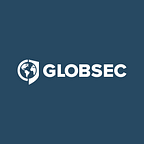EP Elections and Beyond: Active Participation of EU citizens at All Levels
On November 29–30, 24 young leaders from 9 European countries (Slovakia, Germany, Poland, Bulgaria, Austria, France, Greece, FYROM and Italy), 4 partner representatives, 4 esteemed speakers and several GLOBSEC team-members immersed themselves in the complicated task of assessing the current state of our European Union. This was also the ideal opportunity to discuss next steps forward and draft realistic recommendations for European decision-makers, national policymakers, as well as civic and business communities. The work will result in a Policy Brief, incorporating the suggestions developed by the group, and will be disseminated through the networks of the project partners and young leaders.
What follows is a brief summary and pictures from two days of lively and thought-provoking debate.
While the 1st day was used for networking among the group and providing a little bit of history and culture connected to Slovakia, we had a very busy 2nd day. We began with a roundtable discussion taking stock of how we see the EU today, including what works and — crucially — what doesn’t. The State Secretary for Foreign Affairs of the Slovak Republic, Frantisek Ruzicka, and Director of GLOBSEC Policy Institute,Jakub Wisniewski, kicked off the conversation with opening remarks. There was a great deal of concern on the minds of the participants, including the lack of engagement by citizens, environmental challenges, the rise of populism and the necessity to commit to the European project with the benefits, responsibilities and values attached. An overall agreement was reached that we should work to keep the EU alive as it is the best option we have.
The lively discussion was followed by working group exercises. Five topics were on our participants’ radar: youth opportunities and education; migration, internal and external security; environment and sustainability; employment, social affairs and inclusion; and the EU as a global actor. In smaller circles the participants attempted to identify the current challenges and opportunities for the EU, member states and citizens.
In the next roundtable session, we asked ‘what next for Europe?’ Our speakers, Head of the Representation of the European Commission in Slovakia, Ladislav Miko, and Deputy Director of GLOBSEC Policy Institute, Alena Kudzko, focused mostly on participation and engagement of citizens as a tool for introducing changes in EU decision-making processes. The participants made many and diverse remarks, touching upon the role of education, more direct connections between European policymakers and citizens and the upcoming European Parliament elections.
Our last working group exercise dealt with the ambitious attempt to provide recommendations for what to do next in the specific topics of the groups. These suggestions varied from bottom up to top down approaches, targeting EU decision-makers, national governments, corporations and civil society.
